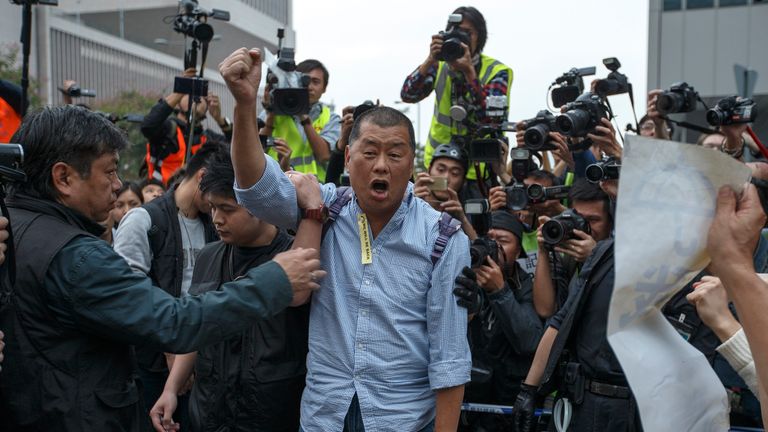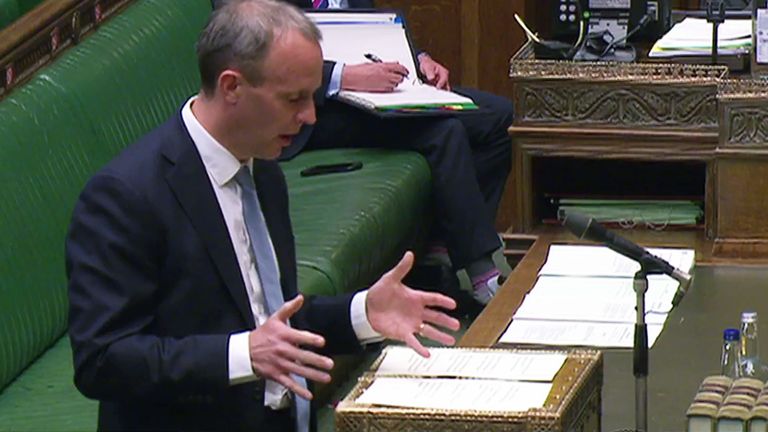Hong Kong media tycoon Jimmy Lai has been arrested under the city’s new national security law on suspicion of collusion with foreign forces, one of his aides has said.
“Jimmy Lai is being arrested for collusion with foreign powers at this time,” Mark Simon, a senior executive at Mr Lai’s media company Next Digital, tweeted in the early hours of Monday.
Mr Simon said police searched both Mr Lai and his son’s home, as well as other employees of Next Digital.
Police also searched the offices of his Apple Daily newspaper.
Hong Kong police said in a statement that seven people aged between 39 and 72 had been arrested on suspicion of violating the national security law, but did not reveal the names of those arrested.
“The police operation is still ongoing and does not rule out more arrests,” the force said.
Mr Lai, 71, who owns tabloid newspaper Apple Daily, has been one of the most prominent democracy activists in the Chinese-ruled city and an ardent critic of Beijing.
He was also arrested this year on illegal assembly charges, along with other leading activists, relating to pro-democracy protests.
Steven Butler, Asia program co-ordinator of the Committee to Protect Journalists, said: “The arrest of media tycoon Jimmy Lai bears out the worst fears that Hong Kong’s national security law would be used to suppress critical pro-democracy opinion and restrict press freedom.”
Wang Dan, dissident and exiled student leader of the crushed 1989 Tiananmen Square protests said: “Although it was expected, the arrest of Jimmy Lai was still very outrageous because his two sons were also arrested, which was obviously an attempt by the authorities to destroy Lai’s will through family ties.
“I call on the international community to take immediate action.”
In an interview with Reuters in May, Mr Lai pledged to stay in Hong Kong and continue to fight for democracy even though he expected to be one of the targets of the new legislation.
Beijing imposed the sweeping new law on 30 June, drawing condemnation from the West and prompting several countries, including Britain, Australia and Canada, to suspend extradition treaties with Hong Kong.
The legislation punishes anything China considers subversion, secession, terrorism and collusion with foreign forces with up to life in prison.
Critics say it crushes freedoms in the semi-autonomous city, while supporters say it will bring stability after prolonged pro-democracy protests last year.
Before Monday, 15 people had been arrested under the law, including four aged 16 to 21 over posts on social media.
Last month, Chinese broadcaster CCTV said pro-democracy activist Nathan Law and five others were wanted under the law, although all six had fled overseas.
Mr Law had relocated to Britain in July to continue international advocacy work for Hong Kong.


